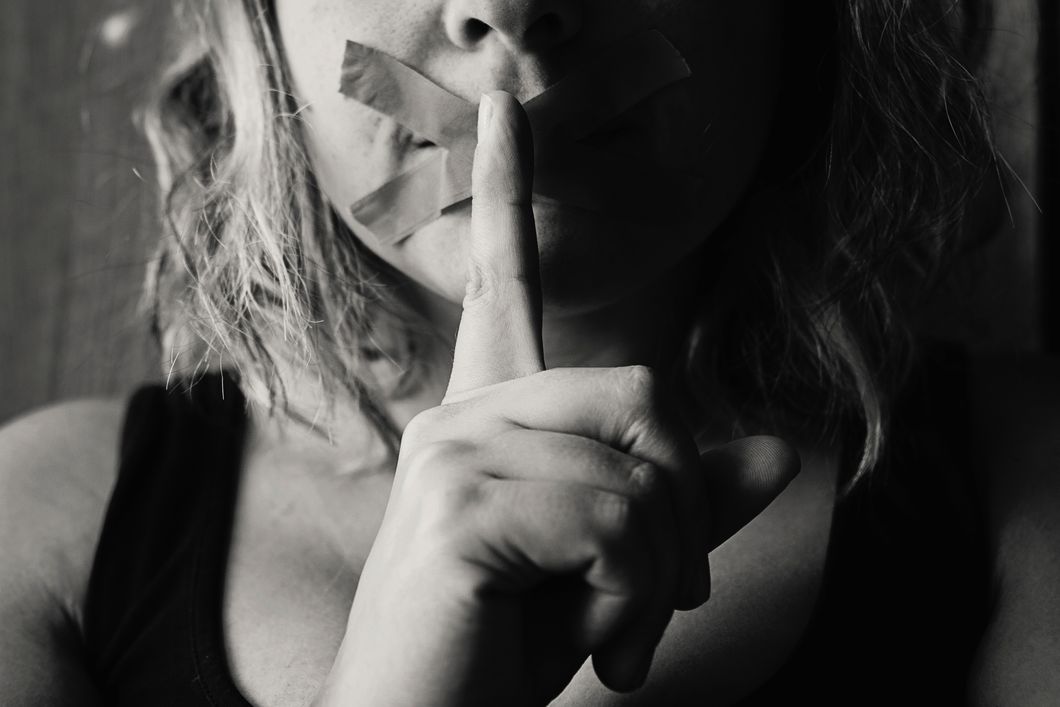Mental illness is surrounded by a debilitating stigma, even today in our age of increasing acceptance of people as they are. From depression to schizophrenia to substance addiction and everything in between, people around the world suffer from mental illness, and it is estimated that about one million people commit suicide every year, so why isn't mental health taken as seriously as any other illness when it is arguably more treatable or preventable than most other illnesses?
According to the World Health Organization, one in four people in the world are personally affected by mental disorder. That is nearly 200 million people affected by mental illness. That's just about the same number of people that populated the United States in 1967. Despite our increasing awareness of the mental illness epidemic, many people still suffer in silence.
Concealing one's mental illness is a common thread amongst those affected for fear of being looked down upon or judged by their peers. Some people who may feel most alone in their illness may be those who are expected by the general public to be the happiest, like celebrities, public figures, etc. However, it could be that expectation of those who are rich and famous to live perfect lives that is driving so many celebrities to attempt to conceal their internal struggle and, in some cases, to take their own lives.
Robin Williams, August 11, 2014.
Marilyn Monroe, August 5, 1962.
Kurt Cobain, April 5, 1994.
Avicii, April 20, 2018.
Kate Spade, June 5, 2018.
Anthony Bourdain, June 8, 2018.
These are just a few, and the most recent, deaths by suicide of those who the public idolized and assumed lived seemingly perfect and exciting lives. The list, sadly, could go on and on and could go back for decades. What is not included with the statistics of the people that took their lives due to mental illness are the people who attempted to overcome their illness through means of their own and their deaths were accidents. If we included the accidental deaths (self-harm, overdose, consumption, etc.) caused by mental illness with the intentional deaths, the number of people who die from mental illness every year would be increased significantly.
I remember in vivid detail the day that the news announced that Robin Williams had died by suicide. Everyone was shocked, even some of the people who were closest to him. Why is that?
All too often people ask for help or divulge their inner demons, especially those with depression, and are met with confusion as to how they could be suffering in such a way that seemingly contrasts their daily life so greatly. Robin Williams was an incredibly successful and affluent actor and comedian with a large fan base and continued support throughout his career, but money and success can't heal the mind. Kate Spade was one of the most influential designers of today's fashion world and her family and friends said she was bright, vibrant, and consistently made people laugh, but pain doesn't discriminate. Avicii was one of the most successful DJ's in modern music and was highly respected and loved by friends and peers, but he was unable to overcome what darkness riddled his mind.
No amount of money, fans, fancy cars, world tours, movie roles, awards, or anything for that matter can be the cure to a mind that is overcome with illness, yet celebrities are still seemingly held to a higher expectation to have their mental health in order, lest they be unjustly labeled as rich, crazy, or off the handle.
Those who live their lives with mental illness, famous or not, need to have hope that they have a support system. Not only through family and friends, but through society's understanding, acceptance and willingness to help those who come forward with their struggle, necessary support and help can be provided for those in need, and, hopefully, the heartbreaking rate of suicide throughout the world will decrease over time.
If you or someone you know is suffering from mental illness/suicidal thoughts, please don't hesitate to utilize your resources. There are always people willing to help!
National Suicide Prevention Lifeline: 1-800-273-8255 or use www.suicidepreventionlifeline.org for online chat.
If you'd like to learn more about suicide prevention and other resources, please visit the Suicide Prevention Resource Center at www.sprc.org


















